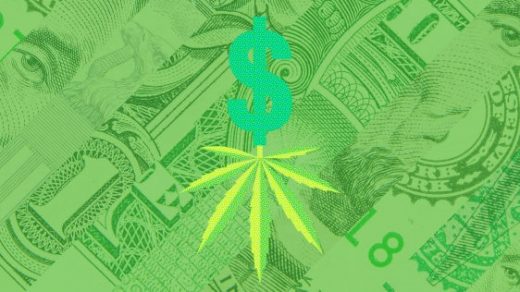Why California Wants To Open A State-Owned Bank For Cannabis Businesses
I recently wrote about the issues facing people of color who work in cannabis or want to enter the industry. But one thing almost all cannabis business owners struggle with is banking. Since marijuana is still illegal under federal law, most banks won’t serve cannabis entrepreneurs because they fear drawing the eye—and ire—of federal regulators. This isn’t unlike how banks treat adult businesses, though those banking decisions are dictated more by stigma than by legalese.
Meanwhile, under federal law, offering banking services to cannabis businesses can qualify as money laundering. As marijuana legalization spreads, this makes little sense; forcing cannabis workers to deal almost exclusively in cash increases crime and, ironically, can encourage or mask under-the-table dealings like money laundering. If nothing else, the potential yearly tax revenue—projected at $1 billion in California—should incentivize states to suss out a solution.
And so, a month into opening the biggest legal market for recreational marijuana, California is mulling a state-owned bank. State Treasurer John Chiang and Attorney General Xavier Becerra will be conducting a study that explores potential legal hurdles, as well as costs and operational issues; Chiang’s office has already issued a request for information, a step toward doing such a study.
The thinking is that a state-owned bank would be subject to less federal oversight than a private bank. But a lawyer specializing in the cannabis industry tells me that while a state bank is a good idea, “any bank solution is a future fix, not an immediate solution.” There’s also little precedent for establishing state banks—North Dakota is the only state with one—and even advocates of public banking acknowledge it could be an uphill battle. In 2010, Massachusetts conducted a similar study to the one California is undertaking and ultimately decided against creating a state bank, in part because it would have cost billions of dollars.
So all this could take years, and in the meantime, banking remains an issue. There are a handful of private institutions dabbling in cannabis banking—the Colorado-based Safe Harbor Private Banking, for example, and Severn in Maryland. But as Chiang noted, it’s possible that even banks willing to take a chance on cannabis businesses may opt out now that Jeff Sessions has given federal prosecutors the green light to crack down on state-sanctioned cannabis markets.
“The starting point is the current situation, in which the cannabis industry operates predominantly in cash, with only sporadic banking access,” Chiang wrote in his request for information, in regards to how California could address the cannabis industry’s banking problem. “The end point is federal legalization of cannabis or, if that is not achievable, legislation shielding financial institutions that serve the cannabis industry.”
One of the “points along the continuum,” he writes, could be a public bank. With Sessions throwing his weight around, maybe that’s more likely to be the end point.
Fast Company , Read Full Story
(42)














